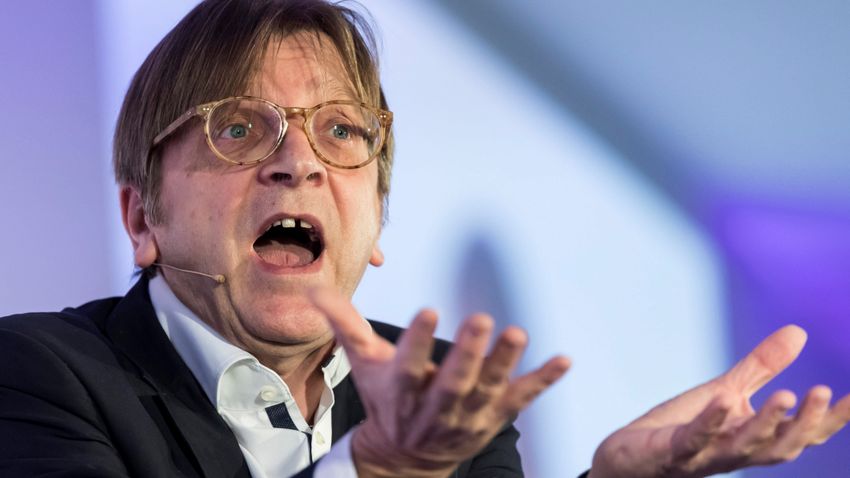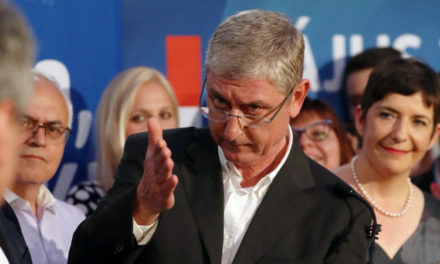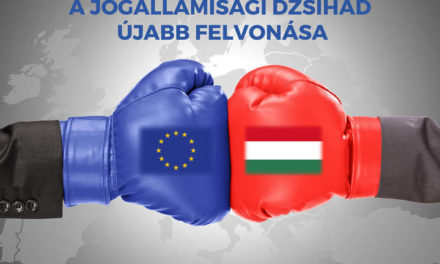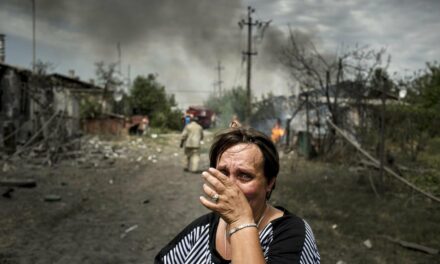If we take a closer look at the past of the Belgian liberal member of the European Parliament, we will get a clearer picture of why it was personally in his interest that the European Union get rid of the energy carriers coming via the pipeline at all costs, writes V4NA in its compilation .
The attraction of the rich MEP, known for his crazy parliamentary outbursts, towards energy transport by sea (much more polluting than pipeline gas and oil transport) is not new. In this article, we present how Guy Verhofstadt pursues wired energy carriers along the lines of well-defined interests. We also show that this is also connected to Qatar in a thousand ways.
a 2018 study , nearly a third of the legislators in the European Parliament stated that they also have external income in addition to their representative fees. Some representatives also hold important positions in various companies, corporations and interest groups. This is currently not against the rules, provided that there is no conflict of interest - although no one has properly checked this for the Brussels people in recent years, as was revealed in the corruption scandal.
Many people earn hundreds of thousands of euros with these positions in addition to the parliamentary salary, but there are also those who have an income of more than one million euros from external sources alone. Not so long ago, Guy Verhofstadt was the third highest-earning MEP from his activities outside the European Parliament. But he didn't start the business then. From 2010, he was given a position on the board of the shipping company Exmar twice This company deals with shipping and one of its main profiles is LNG, or liquefied gas, shipping by sea. By the way, Exmar is also famous for trying to evade its tax obligations through an offshore company.
Exmar writes about itself on its website that
"over the years, the Exmar Group has evolved from a traditional shipping company into an innovation-driven gas industry energy provider . Today, we are actively involved in the heart of the global energy value chain".
We are not talking about a small company, it is present in the United States, Europe, the Middle East, but also in the Far East, for example in Shanghai and Hong Kong. The largest ship transporting LNG can transport 138,000 cubic meters of energy carrier to its destination, but there are several ports where it can also participate in the business of transforming and storing liquefied gas.
Exmar also writes on its website that the company "has always tried to be the first to adapt to changing situations and determine its own direction by taking a leading role through innovation".
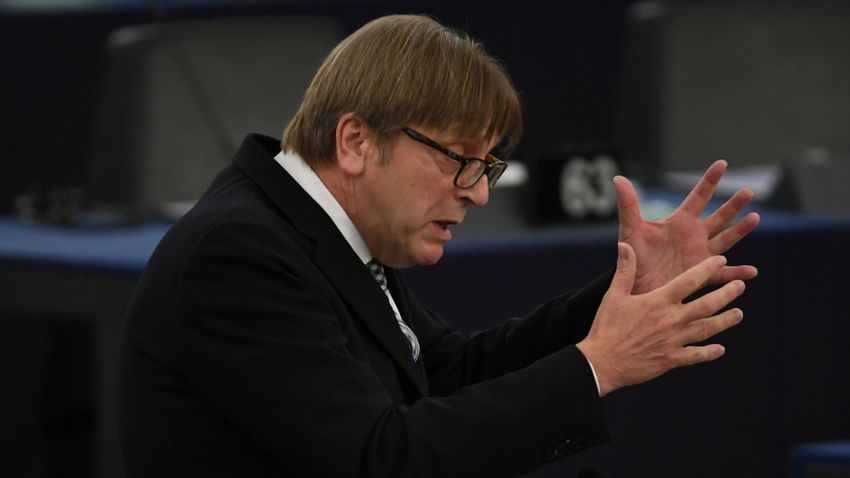
Guy Verhofstadt. Photo: MTI / EPA / Patrick Seeger)
Well, according to the signs, the shipping company is really telling the truth about this, in fact, it is not only trying to manage its own, but possibly others as well. For example, that of the European Union, where some Brusselsites have been clamoring for years that European countries should stop using piped natural gas and use LNG instead.
Guy Verhofstadt directly demonizes energy carriers transported by wire. All this is not surprising, since the liberal politician is a point of connection between Exmar and Brussels, as Verhofstadt already had an interest in the rise of maritime transport in 2010. Moreover, since then, he has been calmly lobbying for the European Union to force member states to use energy carriers transported by sea. And later, Verhofstadt, famous for corruption scandals and immeasurable wealth, raised a question on the lobby level and loudly protested against the construction of the Nord Stream 2 gas pipeline.
At this point, it is worth noting that the conflict in Ukraine could not have come at a better time for Qatar, as many EU countries have started investing in sea-borne energy carriers due to sanctions. Accordingly, construction has started in the ports of many member states, even in those where there were already LNG terminals.
Exmar can be found in some of them as a contractor, and in others as a silent partner. It is present, for example, in one of the Dutch ports, but it also lends a helping hand to the Germans. Moreover, upon closer inspection, the Belgian-based company can also be linked to Belgium being able to import liquefied gas directly from Qatar.
In addition to the Arab country, companies such as Exmar will also benefit from the transition to the EU, and more and more experts have already recognized this. From February 5, the mineral oil products arriving by pipeline will have to be replaced by additional imports, for example from Asia, the USA or the Arab region, by sea. Because of this, of course, the transport routes are significantly longer, which - in addition to leaving a larger ecological footprint - also leads to an increase in the price of transport. At the same time, the demand for tankers transporting to Europe will increase by leaps and bounds, according to Carsten Fritsch, the commodity market expert of the German Commerzbank.
In other words, Exmar and its shareholders can make a huge difference in the coming years because everyone suddenly needs tankers carrying energy carriers.
Cover image: Photo: MTI/EPA/Alessandro Della Valle

